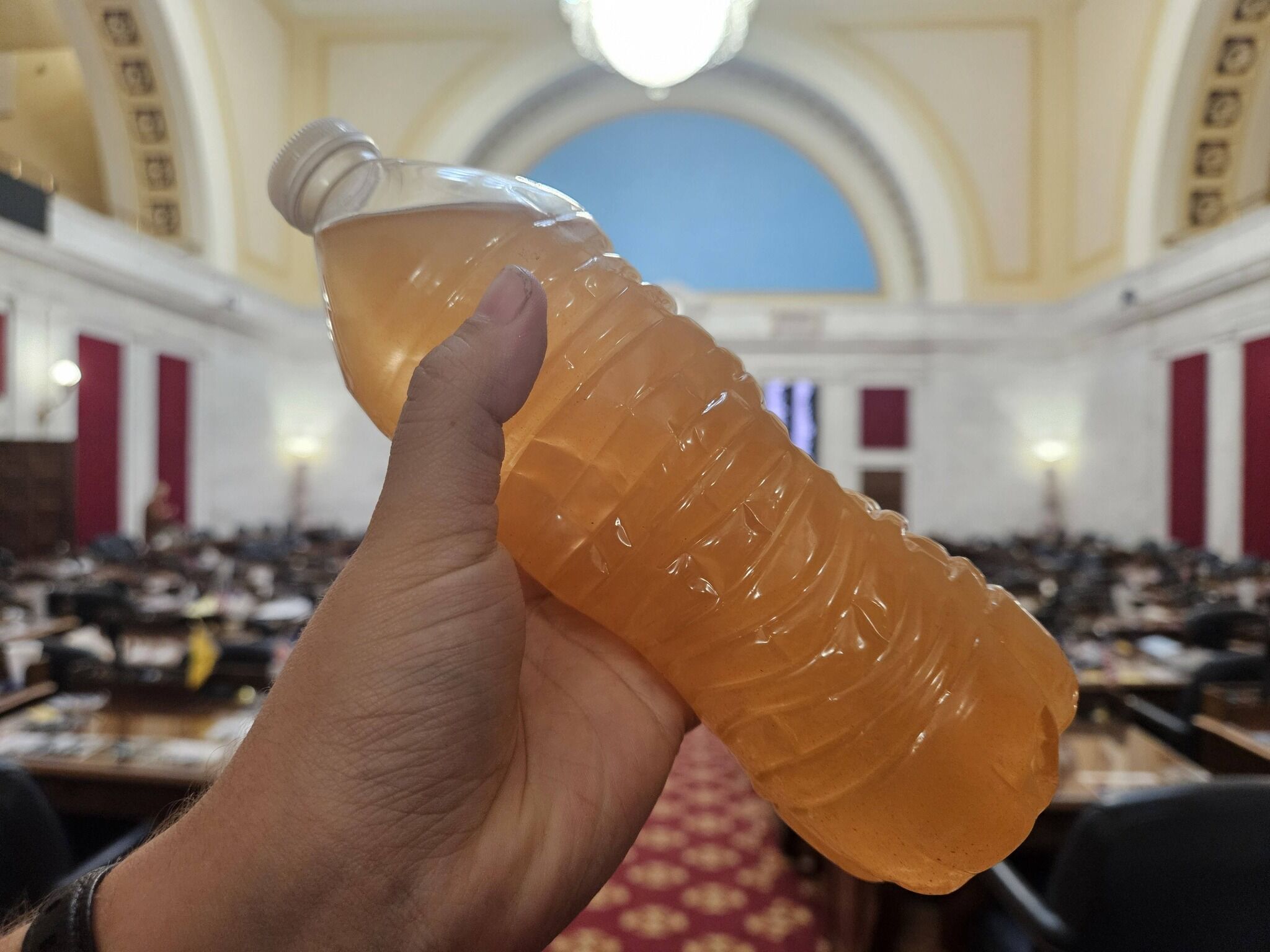- Like
- Digg
- Del
- Tumblr
- VKontakte
- Buffer
- Love This
- Odnoklassniki
- Meneame
- Blogger
- Amazon
- Yahoo Mail
- Gmail
- AOL
- Newsvine
- HackerNews
- Evernote
- MySpace
- Mail.ru
- Viadeo
- Line
- Comments
- Yummly
- SMS
- Viber
- Telegram
- Subscribe
- Skype
- Facebook Messenger
- Kakao
- LiveJournal
- Yammer
- Edgar
- Fintel
- Mix
- Instapaper
- Copy Link
By Lida Shepherd, American Friends Service Committee – WV Economic Justice Project
Read on for some good news (and yes, bad too).
HB 3445 the earned time bill for people on community supervision passed the House! Kenny Matthews talked to the WV Public News Service about why this bill can have big impacts. HB 3445 would allow people to earn days off of probation or parole for accomplishments like completing a treatment program or earning a college degree. Read background from Pew Research on how enacting earned time credits can decrease incarceration for technical violations, reduce caseloads for parole and probation officers, and improve outcomes overall for people in the system.
ANOTHER VICTORY! SB 633 to reform our capias laws passed the Senate Judiciary and is on 2nd reading. SB 633 would require magistrates and judges to set a hearing within 3 days of an arrest on a capias. SB 633 would ensure people don’t sit in jail for weeks or months waiting to have a bond set on a capias. This bill could significantly address the horrific jail overcrowding problem: Capias arrests were the #1 admission to West Virginia jails last year (a number that has grown 150 % in the last decade). To say this bill will save lives is not hyperbole. Read more in Mountain State Spotlight, where Danni Dineen a champion on capias reform talks about her own experience.
Other good bills still in play:
SB 495 – Ensures that state public records laws applies to jails again by undoing legislation passed in 2022 that significantly reduced transparency (Passed Senate). See coverage in Mountain State Spotlight here.
HB 2970 – Creating equitable right to expungement (Passed House).
HB 3552 – Allows counties to seek reimbursement from municipalities for jail per diem costs (Passed House). Our hope is that this could incentive local governments to move more towards evidence-based alternatives like quick response teams, as well as enhanced use of civil citations and personal recognizance bonds. With incarceration costs reduced, tax dollars could be more wisely invested in low barrier housing, substance use treatment, and mental healthcare.
HB 3551 – Provides for criminal history record restrictions for certain persons (Passed House).
HB 2548 – Requires DCR to issue no-cost, temporary ID within a week of release; valid at the DMV for 180 days from issuance (Passed House). This bill will have a positive impact on people coming out of incarceration! Speaking of that, give a listen to the latest Us and Them podcast episode about people in reentry, including coverage of reentry simulation held last month at the capitol by WV Reentry Councils.
That’s some of the positive stuff happening, but it’s not all good. Here are bills we are worried about because they would enhance penalties, criminalize poverty, and double down on the failed war on drugs.
HB 2567 making 2nd offense trespassing a felony with a mandatory 1-5 years of incarceration passed the House. There is no evidence that shows enhancing penalties prevents crime, however without a doubt HB 2567 will further criminalize homelessness and create additional strain on overcrowded jails and prisons.
HB 3006 the Critical Infrastructure Protection Act, which enhances penalties for copper theft, also passed the House on Saturday.
SB 547 turns simple possession of Schedule I & II drugs (opioids and meth) into a felony 1-5 years indeterminate (currently a misdemeanor 90 days to 6 months). The bill allows for people charged under the felony simple possession to petition to have their conviction turned into a misdemeanor after they complete a SUD program. Essentially SB 547 creates a new penalty, then creates a diversion for that new penalty. Also for felony possession with intent to deliver, SB 547 changes the sentence to an indeterminate term of 3 to 15 years (currently 1-15).
Last but not least here is an action you can take to protect those with barriers to employment and at risk of food insecurity.
HB 3484 would kick families off SNAP (food stamps) for being unable to comply with bureaucratic work requirements. It’s currently parked on the House inactive calendar and we’re hoping it stays there. People with criminal convictions face unique barriers to employment, and taking food assistance away from them is extremely harmful. There is no evidence to support that these kinds of sanctions improve employment or earnings, however ample evidence that it takes food away from people (see report from the USDA here). We can stop this counterproductive and mean-spirited bill, take action today!




